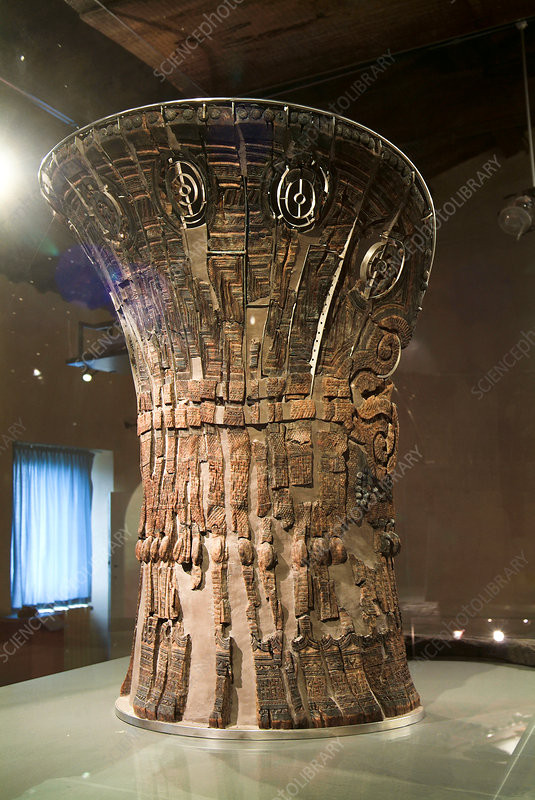Unveiling an Iron Age Marvel
In the picturesque hills of Verucchio, Italy, archaeologists made a remarkable discovery – the intricately carved back of a wooden throne dating back to the early Iron Age (725-701 BCE). This exquisite artifact, now housed in the Civic Archaeological Museum of Verucchio, offers a fascinating glimpse into the world of the ancient Villanovan civilization.
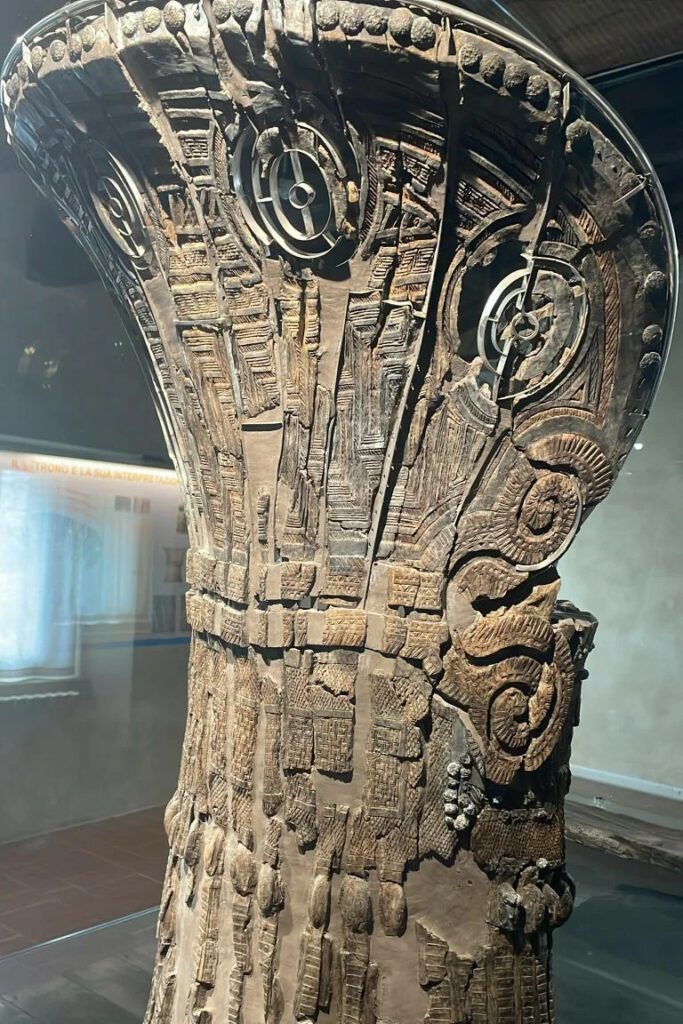
The Villanovan Legacy
A Flourishing Iron Age Culture
The Villanovans, who thrived from around 900 to 700 BCE, left behind a rich cultural legacy. Named after the town of Villanova near Bologna, this civilization was known for its advanced metalworking, distinctive funerary practices, and the development of urban centers.
Cremation and Elaborate Burials
One of the most striking aspects of Villanovan culture was their practice of cremation. The ashes of the deceased were placed in beautifully decorated biconical urns, often accompanied by an array of grave goods that provide invaluable insights into their society.
The Throne: A Symbol of Power
Craftsmanship and Artistry
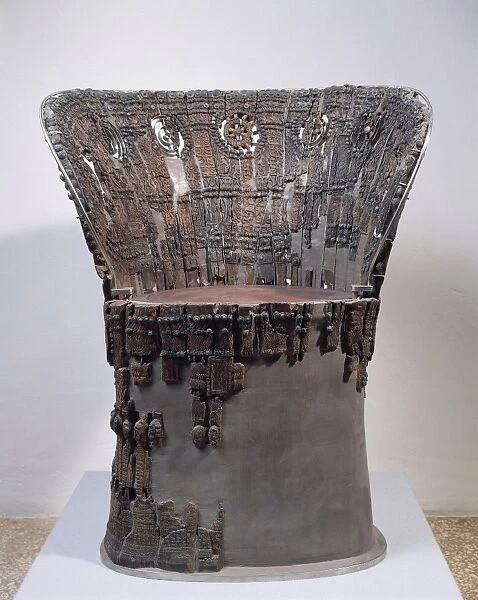
The wooden throne back discovered in Verucchio is a testament to the Villanovans’ exceptional skill and artistry. Its intricate carvings and geometric patterns reflect a sophisticated understanding of design and a mastery of woodworking techniques.
Political and Social Implications
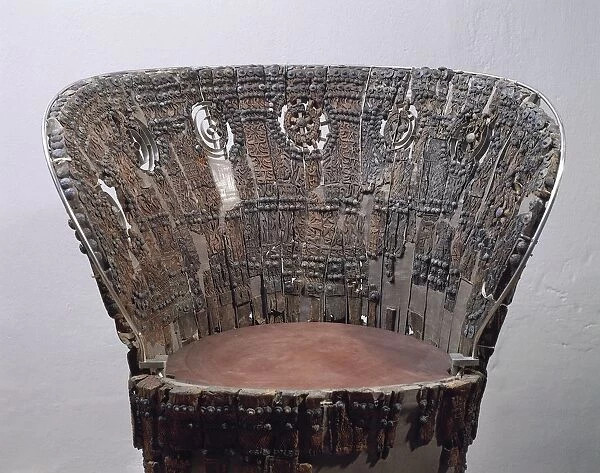
The presence of such an elaborate piece of furniture in a tomb suggests that its owner held a position of significant power and influence. This artifact provides crucial evidence about the social hierarchy and political organization of Villanovan society.
Preserving the Past
The Role of the Civic Archaeological Museum
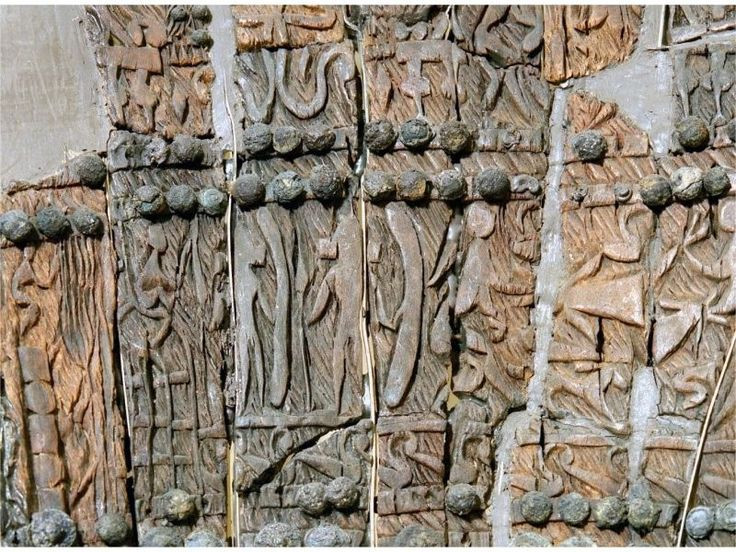
Today, the throne back is carefully preserved and displayed at the Civic Archaeological Museum of Verucchio. This institution plays a vital role in protecting and interpreting the rich cultural heritage of the Villanovan people, offering visitors a chance to connect with this ancient civilization.
Conclusion: A Lasting Legacy
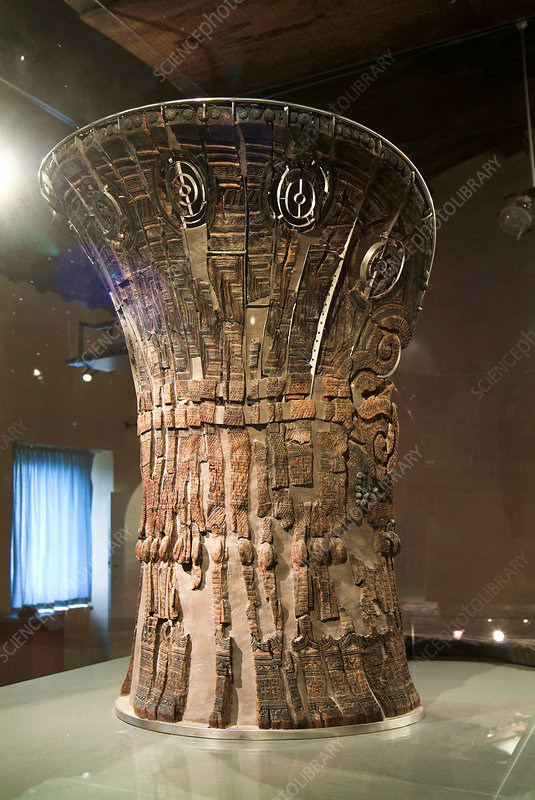
The wooden throne back from Verucchio is more than just a beautiful artifact – it’s a window into a civilization that flourished over 2,700 years ago. As we continue to study and preserve such treasures, we gain a deeper appreciation for the complexity of human history and the enduring legacy of ancient cultures like the Villanovans.
